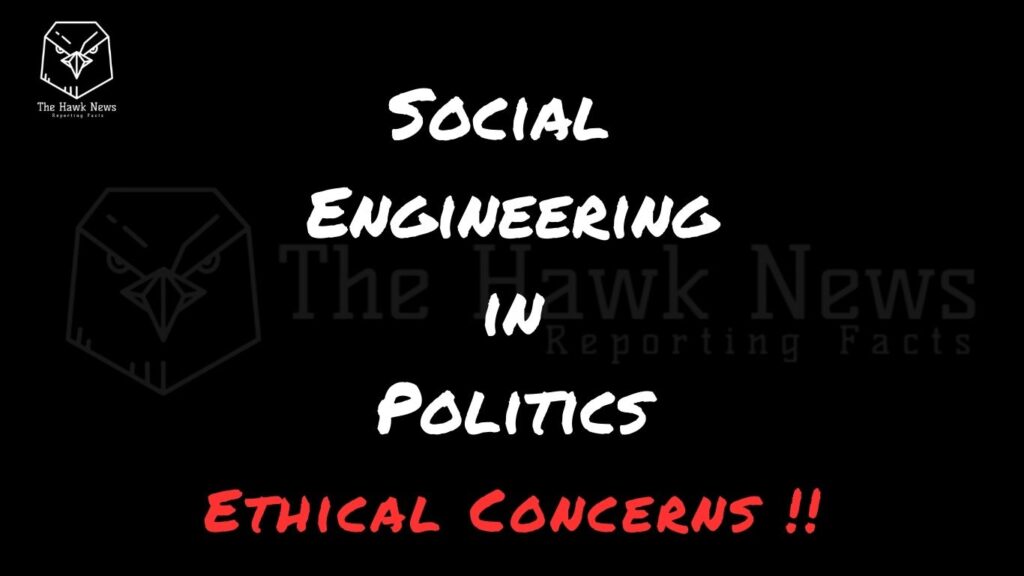
Social engineering in politics raises numerous concerns, particularly when it is used manipulatively or unethically. These concerns range from the erosion of trust to the destabilization of democratic processes. Below are some of the most pressing issues:
1. Manipulation of Public Opinion
- Concern: Social engineering often relies on manipulating emotions like fear, anger, or hope to influence public opinion. This can bypass rational decision-making and foster blind allegiance to a party, ideology, or leader.
- Impact: Citizens may support policies or leaders without fully understanding their implications, undermining informed participation in democracy.
2. Erosion of Trust
- Concern: Tactics such as spreading misinformation, using propaganda, or exaggerating crises can lead to widespread distrust in political systems, media, and institutions.
- Impact: When people lose faith in reliable sources, they may turn to echo chambers or conspiracy theories, deepening polarization.
3. Undermining Autonomy
- Concern: By exploiting psychological vulnerabilities, social engineering infringes on individual autonomy. Behavioral nudging and micro-targeting can subtly influence decisions without people’s awareness or consent.
- Impact: Voters may unknowingly be steered toward choices that benefit specific political agendas, compromising the integrity of their decisions.
4. Polarization and Division
- Concern: Politicians often use identity politics or exploit societal divisions (e.g., race, religion, class) to consolidate support. This deepens societal fractures and creates an “us vs. them” mentality.
- Impact: Such tactics can lead to long-term social conflict, making it harder to achieve unity on critical issues.
5. Propaganda and Misinformation
- Concern: The spread of false or misleading information can shape perceptions, defame opponents, and influence elections. Social media has amplified the speed and reach of such disinformation campaigns.
- Impact: Misinformed citizens are more likely to support harmful policies or ideologies, undermining democratic principles.
6. Crisis Exploitation
- Concern: Governments or political actors may exaggerate or manufacture crises to justify authoritarian measures, restrict freedoms, or distract from accountability.
- Impact: This can lead to the erosion of civil liberties, unchecked power, and public complacency in the face of questionable policies.
7. Short-Term Gains, Long-Term Harm
- Concern: Politicians often use social engineering for immediate electoral benefits without considering its long-term impact on societal cohesion or institutional trust.
- Impact: Over time, these tactics can weaken democratic norms, creating a volatile political climate.
8. Abuse of Technology
- Concern: The rise of AI, big data, and social media platforms enables precise targeting of individuals based on their behaviors and vulnerabilities. This can escalate manipulation efforts through fake news, deepfakes, or personalized propaganda.
- Impact: The digital nature of these tools makes it harder to trace and regulate manipulation, creating an uneven playing field in political competition.
9. Suppression of Dissent
- Concern: Social engineering techniques can be used to silence critics or dissenting voices, whether through censorship, disinformation campaigns, or framing dissenters as enemies of the state.
- Impact: This stifles healthy political discourse and undermines the principles of free expression.
10. Ethical and Moral Concerns
- Concern: The manipulative nature of social engineering often raises moral questions about its compatibility with democratic values. Even when it serves “good” causes, it risks normalizing deceptive practices.
- Impact: It becomes harder to draw the line between acceptable persuasion and unethical manipulation, creating a slippery slope.
11. Global Influence and Interference
- Concern: Foreign actors may use social engineering tactics to influence elections, destabilize governments, or spread discord in other countries.
- Impact: This threatens national sovereignty and can lead to global conflicts fueled by manipulated public opinions.
12. Lack of Accountability
- Concern: Politicians and entities that engage in social engineering often face little accountability, as it can be challenging to prove intent or trace specific outcomes to their actions.
- Impact: This creates a culture where manipulative tactics are normalized and unchecked.
Conclusion
Social engineering in politics poses significant risks to democratic processes, societal trust, and individual autonomy. Addressing these concerns requires:
- Greater transparency in political messaging.
- Public education to foster media literacy and critical thinking.
- Regulations to combat misinformation and unethical use of technology.
Without these safeguards, social engineering could erode the very foundations of participatory governance and societal harmony.